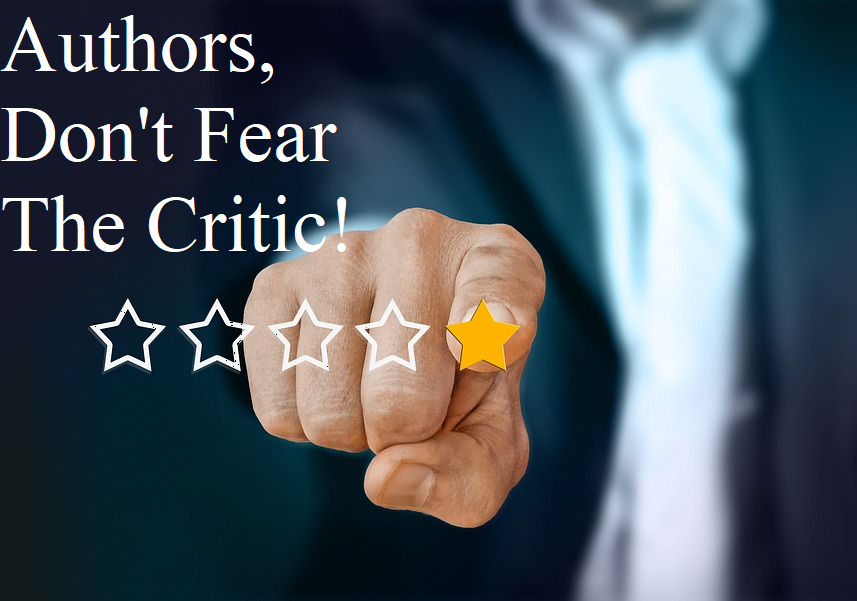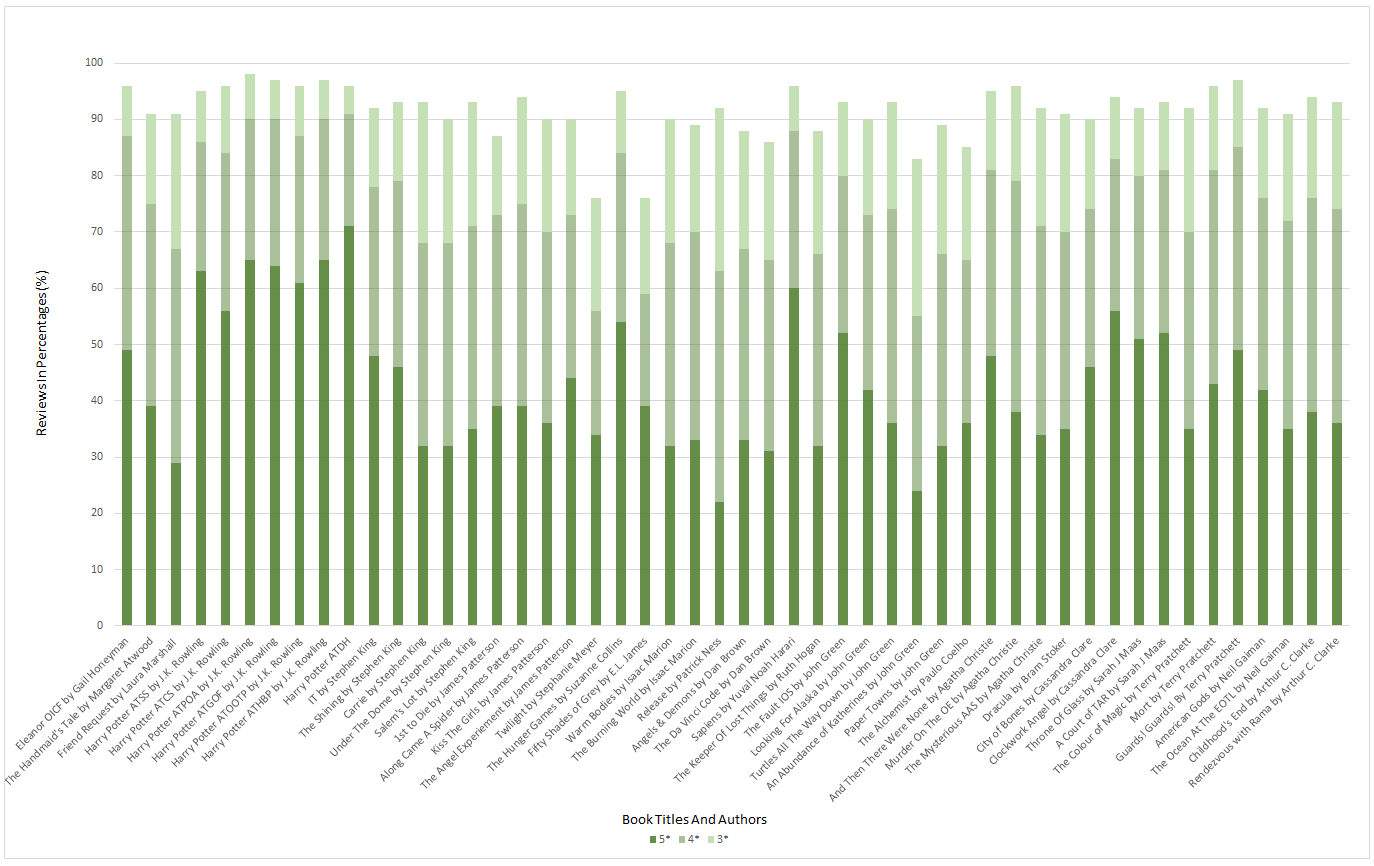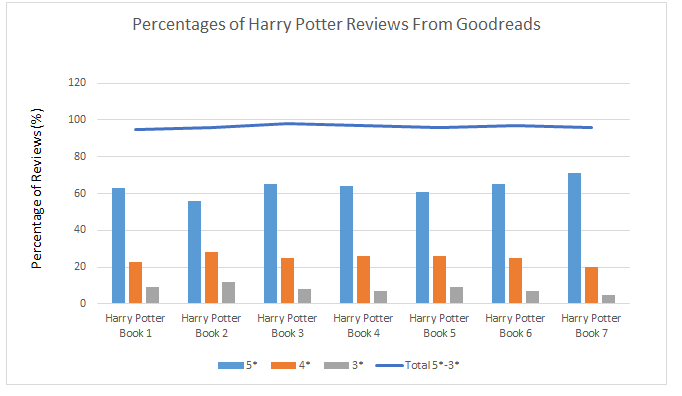 It’s horrible, criticism. Everyone hates it. We hate it even when we know the person, and know that the person is actually trying to help us. Often we’re criticised by mean people we don’t know, and that really does suck, but if you’re trying to become a successful author then taking criticism and dealing with it is part of the job.
It’s horrible, criticism. Everyone hates it. We hate it even when we know the person, and know that the person is actually trying to help us. Often we’re criticised by mean people we don’t know, and that really does suck, but if you’re trying to become a successful author then taking criticism and dealing with it is part of the job.
Unfortunately, I have seen upset and disgruntled authors taking to social media to complain about a bad review that their book has just received (don’t do that). It’s easy to get frustrated and upset when another person judges your work negatively, but that’s just life. Not everyone is going to like your book because people are different and they have different tastes. As a blogger who writes book reviews and reads through the reviews written by other people, I have seen a lot. I’ve seen the great fan reviews and I’ve seen the downright mean and ugly reviews, but I also recognise the fair, critical reviews.
Firstly, I’m going to take you through some statistics. I went on Goodreads and went through 50 books from a mixture of popular authors, and I looked at the percentages of 5*, 4* and 3* reviews which these books have currently received. Below you will see a very large bar chart showing this in more detail. As you can see from the chart, most of these books have a combined percentage of 90% or more reviews which are 3* or above. This is not always the case, 1st to Die by James Patterson, Twilight by Stephanie Meyer, Fifty Shades of Grey by E.L. James, The Burning World by Isaac Marion, Angels & Demons by Dan Brown, etc, sit below 90% and as low as 75%, but let’s be honest, this is still fantastic. Overall these authors have as little as 2% of 2* and 1* reviews and at most 25% of 2* and 1* reviews.

Taking one of the most successful authors to date, J.K. Rowling. I pulled aside her Harry Potter books and took a closer look at the percentage of reviews each book had received. I found that nearly all with the exception of one book, have 60% or more 5* reviews. This seems to be pretty rare as the majority of the other authors I surveyed have their 5* reviews sitting between 30-50%.

So, fair enough, if you want to have a chance at being as successful as J.K. Rowling then you’ll need to have books with over 50% of your reviews being 5*. However, for the rest of us, it means that realistically you want the majority of your reviews to be 3* or higher. If you see that your reviews are leaning towards the lower end or are evenly split then you may need to take a look at your reviews and see if there is any helpful, fair criticism to learn from as you write your next books. Or, if you find that looking through reviews is too painful to do, ask a friend or family member to look though your reviews and make a bullet point list of the things readers liked and didn’t like. This will make it more impersonal and takes out all the unnecessary extra rantings which often come with negative reviews.
When dealing with reviews you can immediately discount any negative reviews which start with; ‘This isn’t really my thing’ or ‘I don’t really read this genre’ or ‘I don’t like this genre’ or any variation of the previous examples. These people are the worst of the worst in my opinion when giving negative reviews, if they don’t like/read the genre usually then why the hell are they reading it now? It doesn’t seem fair to write a negative review when they already know from the start that they’re probably not going to enjoy the book.
Other reviews you can ignore are the ones who simply state they hate the book but don’t really give a reason, or any helpful reason. For instance, I read a book recently which was set in a diary format over a year, and one of the negative reviews complained in slightly harsher words that some of the days were a bit repetitive. To me, this is ludicrous, it’s a diary for god’s sake, you can’t expect every single day to be completely different from every other day. Are their days so wonderful and unique that they never suffer from repetition in their own life? I have to admit I did laugh loudly at this review but it was still a negative review and the person had given just 1*, which brings down the overall rating for that book. If your book gets a review like this, unless more than 25% of your reviews are 2* or below, then ignore it and don’t let it get you down.
The helpful reviews from what I have seen so far always seem to be the 3* reviews. The people who leave 3* reviews usually think that your book is ok, but they also think it could have been better so are often willing to share how they think you can improve. Think of these 3* reviews as the magic reviews, they are the ones which are really going to help you improve as a writer. I had one recently myself where a reviewer commented that my characterisation needed work and I actually agreed with them, it’s an area I’m trying to improve and work on.
Other comments which you should definitely take note of are: if a reviewer comments that they think your characters are flat or too similar, or that they feel your world building could have been better, or that some of the dialogue was too formal/informal or mature/immature for the characters. Other useful critical comments may include things like your book being too long or too short, or the chapters themselves are too long or too short. If you happen to get a number of reviews which say things like ‘this book needs a good editor’ and you haven’t put your work through an editor, then do- or if you have an editor already then it may be worth getting a different one.
Some reviewers may feel annoyed if you don’t resolve certain things in your book or if you end on a cliff-hanger (be wary of this if you’re writing a series). I recently checked out one series where the first book had done fantastically well but the second book had not, even though reviews overall were pretty good. The reason for this was because the first book was unique and ended on an optimistic note whereas the second book was depressing and ended on a cliff-hanger. If you are writing a follow-on series be careful not to misjudge your audience, there will be a reason why they liked your first book so don’t mess it up with your second book.
Ok this is getting a bit long now but I hope I have managed to impart some helpful advice to you. Please feel free to leave comments below with any questions or advice you can share from your own experiences. That’s it from me for now. Happy reading, bibliophiles, and authors – carry on writing!